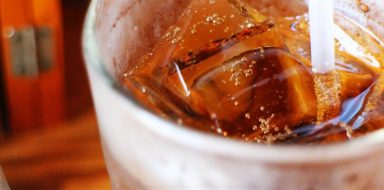Overactive Bladder Home Remedies
Overactive bladder (OAB) affects around 33 million Americans. About half of these people also experience urgency urinary incontinence (UUI), where bladder leakage actually occurs. Overactive bladder home remedies are known to help with OAB symptoms.
What is OAB and Who Does it Affect?
Overactive bladder, also known as OAB and spastic bladder, is exactly what it sounds like; it is a bladder that feels the need to urinate frequently.
Typically, the kidneys produce urine and send it to the bladder. The bladder then expands and holds urine; it also has a sphincter muscle that controls the flow of the urine. When the bladder gets approximately half full (which is about two cups of urine), the brain senses that it needs to be emptied. OAB occurs when there is coordination problem with the system.
Anyone can get OAB. This includes men, women and children. However, 40% of cases occur in women. Children are also prone to develop OAB, but they are also likely to grow out of these symptoms because they learn to control their bladder and recognize the urge to urinate.
Causes and Symptoms of OAB
The exact cause of OAB is unknown, but researchers know that the likelihood of developing OAB increases with age. In addition, there are certain habits and risk factors that can exacerbate symptoms of OAB. These may include:
- Drinking too much fluid
- Drinking caffeine and alcohol
- Taking medications that increase urine production
- Urinary tract infections
- Failure to empty the bladder completely when urinating
- Bladder or urinary tract abnormalities, such as bladder stones or urethral strictures
Home Remedies for OAB
There are various natural remedies that may help to treat OAB. All should be discussed with your healthcare provider, especially the use of any supplements as they may interact with other prescription medications.
Supplements
The following supplements have research that backs their efficacy; however, research is limited, and larger scale studies need to be performed prior to relying on these supplements as mainline treatments.
Common supplements to treat OAB include:
- Gosha-jinki-gan. It is a blend of 10 Chinese herbs. Research indicates that this supplement affects bladder contractions.
- Ganoderma lucidum. This is an herbal extract from East Asia. One study found that men who used this supplement had improved urinary tract symptoms.
- Capsaicin. This is the spiciness that comes from chili peppers. Several research studies indicate that capsaicin is an inexpensive treatment option for OAB.
- Magnesium hydroxide. In one small study, over 50% of the female participants had improved urinary incontinence and nocturia.
- Vitamin D. Two separate studies found that those with low levels of vitamin D were prone to OAB. In one of the studies, women with low levels of vitamin D had a higher risk of pelvic floor disorders and supplementing improved the symptoms. In another study, low levels of vitamin D and episodes of bladder leakage appeared to have a link for older adults.
Kegel exercises are often overlooked as being a form of treatment for anyone with overactive bladder. Here's how to do Kegels for overactive bladder.
Acupuncture
Acupuncture uses tiny, fine-tipped needles placed into certain areas of the body. These areas are thought to restore the flow of energy that may be blocked, which may cause issues in the body. Research is promising and it shows that acupuncture improves symptoms. However, we still need further evidence to fully prove its efficacy.
Essential Oils
Though essential oils are a current trend, they have been around for centuries. They are likely not curative but may treat symptoms of various medical conditions. In the case of OAB, essential oils may help to calm the nerves and muscles that worsen symptoms of OAB.
The oils that may be most helpful include:
- Pumpkin seed oil
- Clary sage oil
- Lavender oil
- Ylang-ylang oil
Kegels Exercises
Kegels exercises help to strengthen the pelvic floor. Because they are strengthening the pelvic floor, you are better able to stop and start the flow of urination. To perform Kegels, simply squeeze the muscles of the pelvic floor and hold for several seconds. Perform for several times each day.
If performing this exercise seems too abstract, using a vaginal cone may be helpful. A vaginal cone is placed inside the vagina. Squeezing the cone with the vaginal muscles and holding the cone in place is ideal. Eventually, you will be able to hold heavier cones.
The Bottom Line
There are various home treatments, prescriptions and natural remedies that can treat OAB. The best treatment for you is the one that is mutually agreed upon between you and your healthcare provider. Have a frank discussion with your provider about your symptoms, as this will help to create the best treatment plan for your condition.







